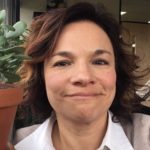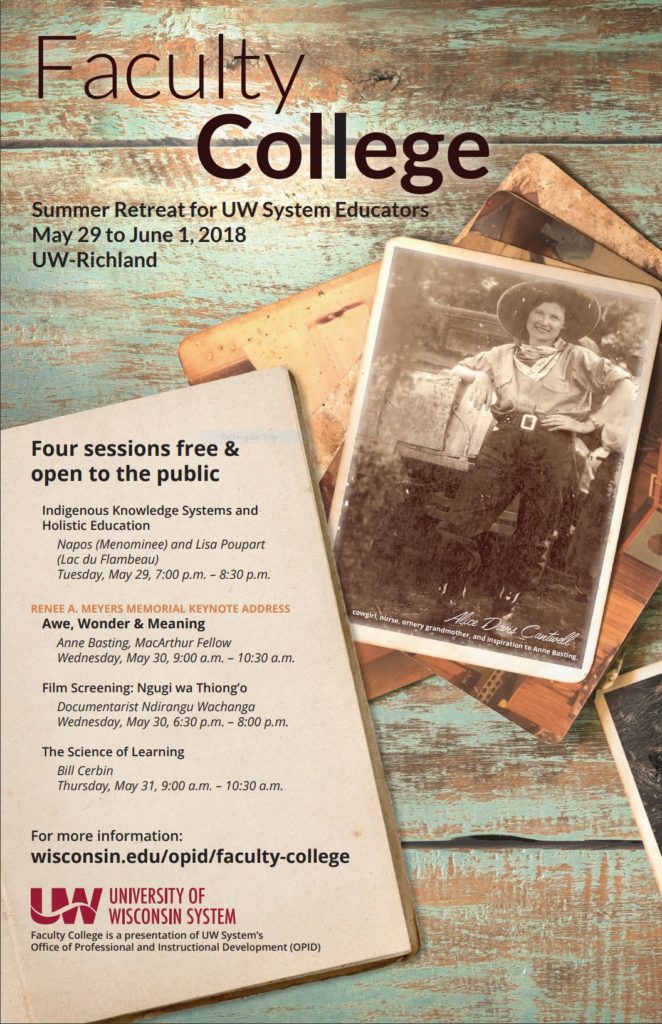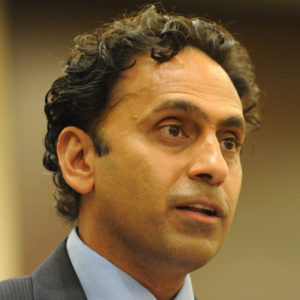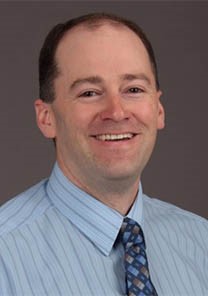Opening Plenary
Indigenous Knowledge Systems and holistic education
Napos, Menominee Nation Oral Traditional Scholar
Lisa Poupart, Associate Professor and Director, Education Center for First Nations Studies UW-Green Bay
First Nations people understand the importance of seeking balance in life. One of the ways balance is experienced in everyday life is through the pairing of a tribal Elder with a younger person. In these pairings, knowledge is transmitted in the time honored oral tradition. The co-presenters will share Indigenous understandings of education as a holistic experience that unifies mind/body/emotion/spirit with all of creation. The co-presenters offer a model of education for higher education that promotes interconnection, balance, and the wellness of all beings.
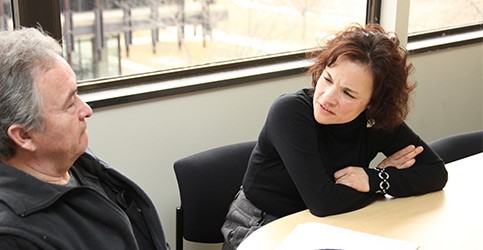
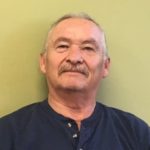 Napos has served as an Oral Scholar in Residence in the UWGB Education Center for First Nations Studies since it opened in 2007. He is an adjunct instructor in First Nations and teaches classes in Menominee history, culture, and world view. He is a graduate of NAES (Native American Educational Services) College with an emphasis in First Nations Studies. Napos is also a member of the Menominee Nation.
Napos has served as an Oral Scholar in Residence in the UWGB Education Center for First Nations Studies since it opened in 2007. He is an adjunct instructor in First Nations and teaches classes in Menominee history, culture, and world view. He is a graduate of NAES (Native American Educational Services) College with an emphasis in First Nations Studies. Napos is also a member of the Menominee Nation.
Lisa Poupart, Ph.D., is a member of the Lac Du Flambeau Band of Lake Superior Anishinaabeg. She is an associate professor of First Nations Studies, Women’s and Gender Studies, and Humanities at UW Green Bay. Dr. Poupart’s work is concerned with healing First Nations generational historic trauma. She is also involved in a number of initiatives to standardize First Nations Studies curriculum in K-16. Her collaborative book Connective Pedagogy: Elder Epistemology, Oral Tradition and Community explores the traditional knowledge and teaching methodology of the Tribal World (2013, Aboriginal Issues Press/University of Manitoba). Dr. Poupart works with First Nations oral traditional Elders and First Nations youth in higher education settings. She directs UWGB’s Doctoral Program in First Nations Studies, the first in Wisconsin, which begins in Fall 2018.
UW-GREEN BAY LAUNCHES FIRST DOCTORAL PROGRAM IN FIRST NATIONS EDUCATION
Renee A. Meyers Memorial Address
Anne Basting, UW-Milwaukee
2016 MacArthur Fellow
Awe, Wonder, & Meaning
What makes you experience awe and wonder? How can you invite others into your experience?
The horizon of Lake Michigan. A symphony. Deeply connecting with another human soul. Awe is an experience of vastness that causes us to reframe our thinking. Here I explore how awe might lead us to meaningful lives through curiosity and connection to community. Sharing stories and examples of my 25 years of work in infusing creativity into the lives of elders and elder care systems, I invite you to consider how awe might awaken curiosity and belonging in your life – in and outside of your classroom and research practice.
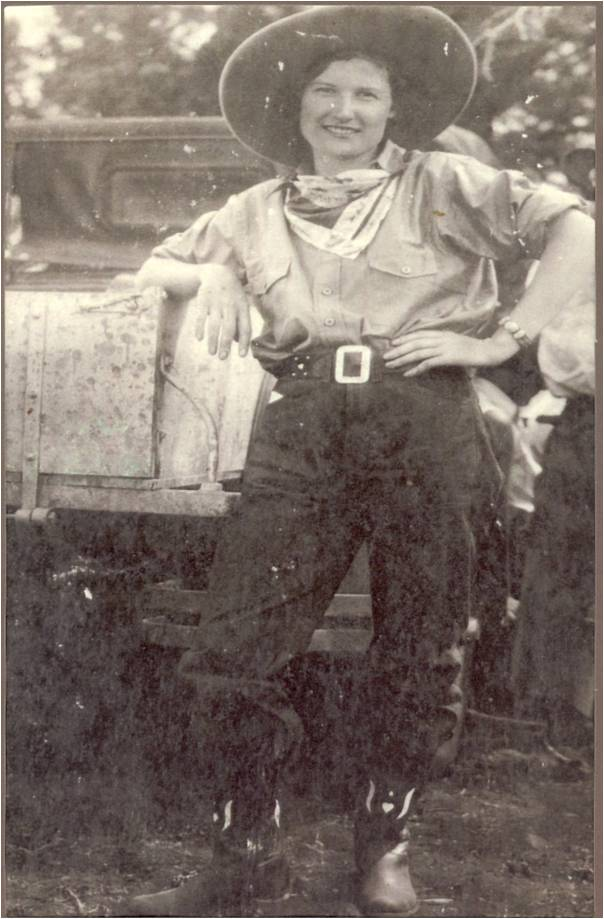
Alice Davis Cantwell: cowgirl, nurse, ornery grandmother, inspiration
Anne Basting, Ph.D., is an educator, scholar, and artist whose work focuses on the potential for the arts and humanities to improve our quality of life as communities and individuals. For over 15 years, Basting has developed and researched methods for embedding the arts into long-term care, with a particular focus on people with cognitive disabilities like dementia.
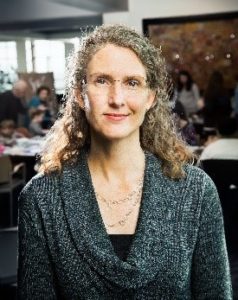
Basting is author of numerous articles and two books, Forget Memory: Creating better lives for people with dementia (2009) and The Stages of Age: Performing Age in Contemporary American Culture. Fellow, Basting is also the recipient of an Ashoka Fellowship, Rockefeller Fellowship, a Brookdale National Fellowship, and numerous major grants, including the MAP Fund and NEA Artworks. She is author and/or producer of nearly a dozen plays and public performances, including Slightly Bigger Women (2015) and Finding Penelope (2011), a play inspired by a year of intergenerational conversations about the myth of Penelope from Homer’s Odyssey, and professionally staged at a long term care facility. Her latest book —The Penelope Project: An Arts-based Odyssey to Change Elder-care (University of Iowa Press, 2016) co-edited with Maureen Towey and Ellie Rose — tells the story of that remarkable collaboration.
Basting holds a Ph.D. in Theatre Arts from the University of Minnesota, and a Masters in Theatre from the University of Wisconsin. She is founder and President of the award-winning non-profit TimeSlips Creative Storytelling, which brings meaning back into the lives of elders with dementia wherever they live. She is working toward a moment when the arts are an integral element in our care systems.
Basting advises the burgeoning field of arts and aging and gives keynote addresses across the world on the power and potential of creative engagement. Basting was Founding Director of UWM’s Center on Age and Community from 2003 to 2013, where she fostered partnerships between scholars, students, and service providers, and translated applied research into innovative educational tools including manuals, films, and social media. Now based in the Peck School of the Arts, Basting coordinates the Student Artist in Residence program and the Creative Trust, an alliance to foster life-long learning through the arts. Her teaching/practice focus includes Arts & Social Entrepreneurship, Playwriting, Directing, and Storytelling.
Basting is at work on a new project, “I Won’t Grow Up: an intergenerational, creative exploration on the meaning and value of childhood, inspired by Peter Pan. She lives in Milwaukee with her husband filmmaker Brad Lichtenstein and their two sons Ben and Will.
Documentary Screening and Discussion
Ngugi wa Thiong’o: the River Between African Languages and European Languages (2018)
Documentarist Ndirangu Wachanga, UW-Whitewater
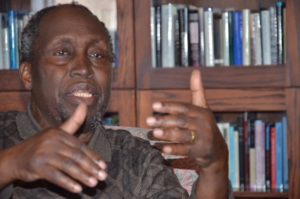
Internationally known literary writer and scholar Ngugi wa Thiong’o is the subject of a documentary by UW Whitewater Professor of Journalism Ndirangu Wachanga. Ngugi is a Distinguished Professor of English and Comparative Literature at the University of California – Irvine. He has been nominated for the Nobel Prize for Literature for the past few years. Both he and Wachanga are from Kenya.
This documentary examines the life and intellectual career of scholar and literary author Ngugi wa Thiong’o. It is also a reflection of the political, cultural, and intellectual history of Kenya. Looking at Ngugi’s life provides a window into the major developments in the study of humanities in East Africa. The documentary examines not only Ngugi’s thoughts and creative, intellectual, cultural and political activities at various stage of his career, but also some of the key events in Africa before and after independence from European colonizers. Ngugi’s biography, thoughts, and works, coupled with the views of experts and students of his work lead us to a deeper understanding of colonialism, decolonization and disillusionment, exigencies of postcoloniality, East Africa’s intellectual history, pain and melancholic anxieties of exile, and diasporic privileges and displacements.
The objective of this documentary is to use Ngugi’s life and works to understand Kenya’s contested histories and memories. Most countries have developed sanctioned programs of forgetting. Ngugi’s biography invites us to resist the urge to forget.
Ndirangu Wachanga, Ph.D is a Professor of Media Studies and Information Science at University of Wisconsin-Whitewater. Wachanga is the authorized documentary biographer of Professor Ali A. Mazrui, Professor Ngugi wa Thiong’o, and Professor Micere Mugo. His documentary projects seek to preserve East African memory by capturing raw voices using visual and audio technology. Wachanga just published Growing up in a Shrinking World: How Politics, Culture and the Nuclear Age Defined the Biography of Ali A. Mazrui. His co-edited volume with Simon Gikandi, Ngugi: Reflections on a Life of Writing, is forthcoming. His documentary, Ali Mazrui: A Walking Triple Heritage, won the 2015 New York African Studies Book Award. Wachanga’s academic work has appeared in peer reviewed journals such as the Journal of Mass Media Ethics, the Journal of African Media Studies, the South African Journal for Communication Theory and Research, and African Communication Research. Wachanga has written for media in different continents. His journalistic work has appeared in the Daily Nation, East African Standard, Business Daily, North Texas Daily, British Broadcasting Corporation and Voice of America. His research interests include memory, global media and information ethics; the intersections of media formations and social, political, economic and cultural practices; communication technologies, and the contemporary digital Diaspora. He is currently working on a monograph on non Western approaches for analyzing ethical dilemmas in participatory journalism, popular culture and social media.
Keynote
Bill Cerbin, UW-La Crosse
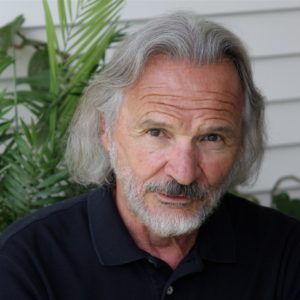 Bill Cerbin is a Professor of Psychology and founding director of the Center for Advancing Teaching and Learning at the University of Wisconsin La Crosse. In a lengthy career, he has taught a wide variety of undergraduate and graduate psychology courses, and has worked with hundreds of college teachers on improvement of teaching and learning. He is a former director of the Wisconsin Teaching Fellows and Scholar Program.
Bill Cerbin is a Professor of Psychology and founding director of the Center for Advancing Teaching and Learning at the University of Wisconsin La Crosse. In a lengthy career, he has taught a wide variety of undergraduate and graduate psychology courses, and has worked with hundreds of college teachers on improvement of teaching and learning. He is a former director of the Wisconsin Teaching Fellows and Scholar Program.
Bill was a Carnegie Scholar with the Carnegie Academic for the Scholarship of Teaching and Learning (class of 1999). Since 2003, he has directed the Lesson Study Project, which supports college instructors to use lesson study practices to improve teaching and student learning. He is the author of a book on lesson study in higher education (Stylus, 2011), and numerous articles about teaching and learning.
His niche in SoTL is in applying research from the learning sciences to improve teaching and learning.
The Science of Learning: Lost and found in Translation
The learning sciences have produced thousands of studies about how and why people learn or don’t learn what they are taught. Much of this research could be valuable for educators, but who has time to read and think about research outside one’s own field of expertise. Consequently, little of what we know about learning gets translated into practice. This is unfortunate; without deep understanding of how learning works, how can teachers make informed decisions about how best to support student learning?
In the spirit of trying to bridge the gap between arcane research on learning and the needs of classroom teachers, this talk highlights research findings that have significant implications for teaching. Some of the research confirms common sense ideas about learning, some of it is counterintuitive, and some of it challenges commonly held beliefs about how students learn. Attend this talk and all will be revealed . . .
Workshops
Specialized Workshops
Two full afternoon sessions provide a "deep dive" into (1) conflict resolution through dialogue and performance (or 2) (re)writing effective assignments.
These two workshops will each meet for the full afternoon on both Wednesday and Thursday, 1:15 p.m. – 4:00 p.m.
The Theatre of Empowerment will perform before Faculty College on Friday morning.
THE THEATRE OF EMPOWERMENT: Teaching and Learning Conflict Transformation
Through Dialogue, Storytelling, and Performance
Jonathan Shailor, University of Wisconsin-Parkside
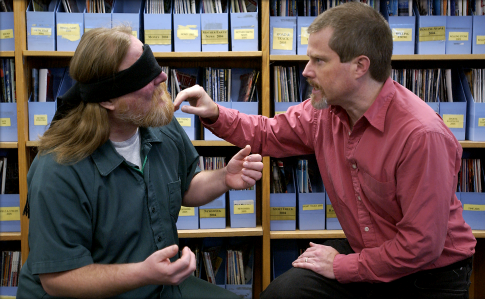
Jonathan Shailor (right) rehearsing King Lear with an actor at the Racine Correctional Institution at Sturtevant, Wisconsin.
In this highly interactive workshop series, Jonathan will guide participants through a process of exploring creative and compassionate responses to moral conflict. As part of this process, participants will select a current issue that is of concern to group members. Using dialogue, storytelling, and improvisation, participants will explore the issue, and from that exploration, develop an interactive theatre piece. On Friday, the group will perform for Faculty College, inviting the audience into a lively conversation about the issue, and more broadly, conflict, creativity, and compassion in higher education.
Theatre of Empowerment (Certificate in Conflict Analysis and Resolution Blog)
The Shakespeare Prison Project
Performing New Lives: Prison Theatre
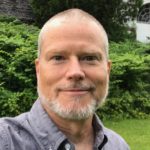 Jonathan Shailor is a Professor of Communication at the University of Wisconsin-Parkside, and Director of The Certificate Program in Conflict Analysis and Resolution, which he founded in 1996. Each semester, Jonathan and his students in The Conflict Program bring The Theatre of Empowerment to multiple audiences, including (at various times) schools, colleges, nonprofit organizations, prisons, and a homeless shelter. His class opened UW System’s Spring Conference on Teaching & Learning on April 12, 2018 by performing and facilitating dialogue regarding sexual assault. Jonathan’s published research includes the essay “Kings, Warriors, Magicians, and Lovers: Prison Theatre and Alternative Performances of Masculinity” (2013), and the books Empowerment in Dispute Mediation: A Critical Analysis of Communication (1994), and Performing New Lives: Prison Theatre (2010). He is the founder and director of The Shakespeare Prison Project (2004 – present), a program that has been featured in The New York Times and on National Public Radio. Jonathan is also an Associate and Former Fellow at the CMM Institute for Personal and Social Evolution (2015), and a recipient of The Sister Joel Read Civic Engagement Practitioners Award, given by Wisconsin Campus Compact (2017). He lives in Kenosha with his wife and son – and their cat Trisket, a refugee from Racine Correctional Institution.
Jonathan Shailor is a Professor of Communication at the University of Wisconsin-Parkside, and Director of The Certificate Program in Conflict Analysis and Resolution, which he founded in 1996. Each semester, Jonathan and his students in The Conflict Program bring The Theatre of Empowerment to multiple audiences, including (at various times) schools, colleges, nonprofit organizations, prisons, and a homeless shelter. His class opened UW System’s Spring Conference on Teaching & Learning on April 12, 2018 by performing and facilitating dialogue regarding sexual assault. Jonathan’s published research includes the essay “Kings, Warriors, Magicians, and Lovers: Prison Theatre and Alternative Performances of Masculinity” (2013), and the books Empowerment in Dispute Mediation: A Critical Analysis of Communication (1994), and Performing New Lives: Prison Theatre (2010). He is the founder and director of The Shakespeare Prison Project (2004 – present), a program that has been featured in The New York Times and on National Public Radio. Jonathan is also an Associate and Former Fellow at the CMM Institute for Personal and Social Evolution (2015), and a recipient of The Sister Joel Read Civic Engagement Practitioners Award, given by Wisconsin Campus Compact (2017). He lives in Kenosha with his wife and son – and their cat Trisket, a refugee from Racine Correctional Institution.
(re)Writing assignments: using writing to enhance learning across the curriculum
Holly Hassel, UW-Marathon County
Jill Stukenberg, UW-Marathon County
Assigning and assessing writing offer opportunities to instructors to gain in-depth insight into students’ growth as thinkers and introduce them to academic disciplines in highly engaging ways with long-term impact on their academic development. This workshop will introduce participants to disciplinary knowledge from writing studies that will equip them to identify the values of their own areas of disciplinary expertise. Through readings and activities, workshop participants will enhance their understanding of how writing assignments are both a pedagogical and an assessment tool, and will have opportunity to workshop an assignment or assignment idea. Session attendees will learn ways to respond to student writers in alignment with best practices identified from writing studies research.
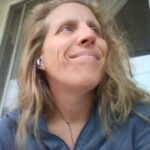 Holly Hassel is a Professor of English and Gender, Sexuality, and Women’s Studies at the University of Wisconsin-Marathon County. Hassel regularly teaches courses in first-year writing, women’s and gender studies, and children’s literature, as well as writing studio. Her work in the field of writing studies has appeared in peer-reviewed journals such as College Composition and Communication, College English, Pedagogy, and Writing Program Administration. She is currently editor of the journal Teaching English in the Two-Year College. Hassel is also the co-author of the introductory textbook Threshold Concepts in Women’s and Gender Studies with Christie Launius (2nd edition, Routledge 2018), Surviving Sexism in Academia: Strategies for Feminist Leadership (co-edited with Kirsti Cole, Routledge, 2017), and Gendered Identities: Rereading Gender in Children’s and Young Adult Literature (co-edited with Tricia Clasen, Routledge, 2016).
Holly Hassel is a Professor of English and Gender, Sexuality, and Women’s Studies at the University of Wisconsin-Marathon County. Hassel regularly teaches courses in first-year writing, women’s and gender studies, and children’s literature, as well as writing studio. Her work in the field of writing studies has appeared in peer-reviewed journals such as College Composition and Communication, College English, Pedagogy, and Writing Program Administration. She is currently editor of the journal Teaching English in the Two-Year College. Hassel is also the co-author of the introductory textbook Threshold Concepts in Women’s and Gender Studies with Christie Launius (2nd edition, Routledge 2018), Surviving Sexism in Academia: Strategies for Feminist Leadership (co-edited with Kirsti Cole, Routledge, 2017), and Gendered Identities: Rereading Gender in Children’s and Young Adult Literature (co-edited with Tricia Clasen, Routledge, 2016).
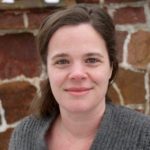 Jill Stukenberg is an Associate Professor of English at UW-Marathon County. Her fifteen-year span of teaching experience includes developmental writing, first-year composition, reading courses, and creative writing, and recent pedagogical presentations and publications on the teaching of writing include “Rethinking Inspiration” (presentation at Creative Writing Studies Organization 2017 conference) and “Deep Habits: The Workshop as Critique in Creative Writing” (published in Arts & Humanities in Higher Education 2016). She was a 2016 – 2017 Wisconsin Teaching Fellow, and is the current UW Marathon County Distinguished Faculty Society honoree. With Dr. Holly Hassel, she developed “Building Writing into the Curriculum” a workshop for faculty across the UW Colleges.
Jill Stukenberg is an Associate Professor of English at UW-Marathon County. Her fifteen-year span of teaching experience includes developmental writing, first-year composition, reading courses, and creative writing, and recent pedagogical presentations and publications on the teaching of writing include “Rethinking Inspiration” (presentation at Creative Writing Studies Organization 2017 conference) and “Deep Habits: The Workshop as Critique in Creative Writing” (published in Arts & Humanities in Higher Education 2016). She was a 2016 – 2017 Wisconsin Teaching Fellow, and is the current UW Marathon County Distinguished Faculty Society honoree. With Dr. Holly Hassel, she developed “Building Writing into the Curriculum” a workshop for faculty across the UW Colleges.
Eclectic Workshops: Robust, Durable Learning - Oral Histories - Scholarship of Teaching & Learning (SoTL)
Enrollment in these four 75-minute sessions will give you a broad overview of multiple epistemologies and their intersection with the Scholarship of Teaching and Learning.
All four sessions will be held consecutively throughout Wednesday and Thursday afternoon, 1:15 p.m. – 4:00 p.m.
According to the Evidence: Strategies to Be a Model Teacher and Optimize Learning
Regan A. R. Gurung, UW-Green Bay
We are surrounded by academic buzzwords. Publications urge us to transform our students, create significant change, use high-impact practices, and more. How does one do this? Far too often social media and blogs tout recommendations for better teaching and learning that sometimes amount to nothing more that quackery. On the other hand, too many colleges rely on poor measures of teaching (e.g., student evaluations). What does the evidence show is the best way to teach? What are the established ways to foster learning? This presentation will review what the evidence suggests is the best way to teach and the best ways for students to study and learn.
Regan A. R. Gurung, Ph.D. is the Ben J. and Joyce Rosenberg Professor of Human Development and Psychology at the University of Wisconsin-Green Bay. He was born and raised in Bombay, India, received a B.A.in psychology at Carleton College (MN), and a Masters and Ph.D. in social and personality psychology at the University of Washington (WA), and then spent three years at UCLA as a National Institute of Mental Health (NIMH) Research fellow. He is the author/co-author/editor of 15 books and over 125 articles and book chapters. He is winner of the American Psychological Foundation’s Charles Brewer Distinguished Teacher of Psychology Award, one of the highest teaching awards in psychology, together with the Carnegie Foundation Wisconsin Professor of the Year, and the UW System Regents Award for Teaching.
Doing Research on Your Students’ learning: an introduction to scholarship of teaching and learning (Sotl)
David Voelker, UW-Green Bay
The Scholarship of Teaching and Learning is both a form of research and a way of improving teaching. Through practicing SoTL, we can deepen our understanding of how our students are learning—and of the barriers that might get in their way. A SoTL project often begins with a perceived teaching “problem,” but as Randy Bass argued in a classic 1999 article, a problem can actually be an opportunity to improve student learning. In this interactive workshop, you will have a chance to think about how you might turn a teaching frustration into a research question that you could answer using methods that are already familiar to you. Please come prepared to discuss student learning in a specific course.
David Voelker is an Associate Professor of Humanities and History at the University of Wisconsin–Green Bay, where he has taught early American history, environmental history, and environmental humanities since 2003. He was recently appointed to the graduate faculty for UWGB’s new First Nations Education Doctoral Program. He was a Wisconsin Teaching Fellow in 2006–07. He documented his project in an August 2008 article in The History Teacher. As a participant in the OPID-sponsored Signature Pedagogies project, he co-authored with Joel Sipress (UW-Superior) an essay on the impact of the Scholarship of Teaching and Learning (SoTL) on history pedagogy. He and Sipress went on to publish an essay in the March 2011 Journal of American History that combined historical analysis with SoTL research to suggest an alternative to the dominant coverage model of teaching introductory history. (This article won the 2012 Maryellen Weimer Scholarly Work on Teaching and Learning Award.) He and Sipress have created a digital textbook alternative for American history that is in production with Oxford University Press. With Regan Gurung (UWGB), he co-edited a collection of essays titled Big Picture Pedagogy: Finding Interdisciplinary Solutions to Common Learning Problems, which was published by Jossey-Bass in 2017. This is his seventh year as a workshop presenter at Faculty College and his sixth and final year as co-director of the Wisconsin Teaching Fellows & Scholars program.
Documenting and recording oral histories
Ndirangu Wachanga, UW-Whitewater
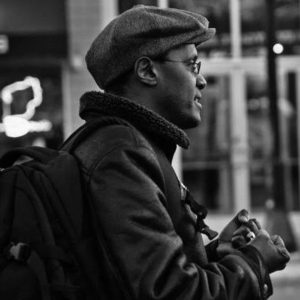 The global production of knowledge continues to privilege the written text over the oral text. Oral histories are often located at the margins and/or subjected to distorted interpretations.
The global production of knowledge continues to privilege the written text over the oral text. Oral histories are often located at the margins and/or subjected to distorted interpretations.
This session will examine the importance of capturing, with the aim of preserving, oral histories and herstories using audio and visual technologies.
Preserving oral histories and herstories through visual and audio technology presents a number of advantages, foremost among these the capture and subsequent preservation of raw voices. But perhaps even more importantly, by creating an open access repository of the interviews this project democratizes production of and access to knowledge.
Ndirangu Wachanga, Ph.D is a Professor of Media Studies and Information Science at University of Wisconsin-Whitewater. Wachanga is the authorized documentary biographer of Professor Ali A. Mazrui, Professor Ngugi wa Thiong’o, and Professor Micere Mugo. His documentary projects seek to preserve East African memory by capturing raw voices using visual and audio technology. Wachanga just published Growing up in a Shrinking World: How Politics, Culture and the Nuclear Age Defined the Biography of Ali A. Mazrui. His co-edited volume with Simon Gikandi, Ngugi: Reflections on a Life of Writing, is forthcoming. His documentary, Ali Mazrui: A Walking Triple Heritage, won the 2015 New York African Studies Book Award. Wachanga’s academic work has appeared in peer reviewed journals such as the Journal of Mass Media Ethics, the Journal of African Media Studies, the South African Journal for Communication Theory and Research, and African Communication Research. Wachanga has written for media in different continents. His journalistic work has appeared in the Daily Nation, East African Standard, Business Daily, North Texas Daily, British Broadcasting Corporation and Voice of America. His research interests include memory, global media and information ethics; the intersections of media formations and social, political, economic and cultural practices; communication technologies, and the contemporary digital Diaspora. He is currently working on a monograph on non Western approaches for analyzing ethical dilemmas in participatory journalism, popular culture and social media.
How to tell a (learning) story: narrative in the classroom and sotl
Alison Staudinger, UW-Green Bay
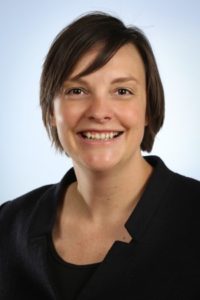
This hands-on workshop is an introduction to the scholarship of teaching and learning (SoTL) through the lens of storytelling and narrative inquiry. Participants will come away with a set of resources on integrating storytelling, including oral histories, “think-alouds,” personal narrative and podcasting, into their SoTL work. We’ll begin by discussing the connections of narrative to indigenous, feminist and other ways of knowing which challenge our assumptions about “rigor,” connecting this work to our keynote speakers at Faculty College. Then, we’ll learn by doing: with guidance from the instructor, each participant will craft and share a very short story about an important question they have about student learning to demonstrate the connections between narrative and learning. Then we’ll shift to consider how we can transform this question into a site for scholarly investigation and consider how (and whether) qualitative and interpretive methods might be appropriate to this exploration. Guided by Gary Poole’s (2013) suggestion that this scholarship must “represent complexity well,” participants will leave with an “action-plan” for exploring their question and/or using narrative in the classroom, and a sense of the wide-range of methods used in SoTL.
Alison Staudinger is an Assistant Professor of Democracy and Justice Studies, Women’s and Gender Studies and Political Science at the University of Wisconsin–Green Bay, where she teaches courses in political theory, gender, and the law. She was a Wisconsin Teaching Fellow in 2014-2015, and her project grew into Gender in the Political Science Classroom. This edited volume, forthcoming from Indiana University Press, is co-edited with Katia Levintova and features other WTFS alums. Staudinger’s interest in humanistic approaches to SOTL informed her 2017 publication “Reading Deeply for Disciplinary Awareness and Political Judgment,” published in Teaching and Learning Inquiry, which explores reading student work as contributions to political discourse. At UWGB, Staudinger has been a Teaching Fellow, a Dialogue Fellow, a faculty mentor for the Equity Gap Fellows program, and co-director of a project to enhance civically minded work in the classroom and the community. In 2017-2018, Staudinger was a fellow at the Center for 21st Century Studies at the University of Wisconsin-Milwaukee, working on a project connecting mid-century theory and literature to contemporary questions of totalitarianism and democracy. Starting in Spring 2018, she will co-direct the Wisconsin Teaching Fellows and Scholars program.

